The Center for Integrated Earth System Science (CIESS) is a cooperative effort between the Jackson School of Geosciences and the Cockrell School of Engineering. The center fosters collaborative study of Earth as a coupled system with focus on land, atmosphere, water, environment, and society.
The center integrates the university’s strengths in earth system modeling, observing and monitoring, computational science and engineering, supercomputing, air resources engineering, hydrology and water resources, sedimentology and depositional processes, energy/policy, outreach/communications, and other fields.
The Center for Integrated Earth System Science (CIESS) seeks a deeper understanding of the physical chemical, biological and human interactions that determine the past, present and future states of Earth.
CIESS places a strong emphasis on the societal impacts of research in earth system science and provides a fundamental basis for understanding the world in which we live and seek sustainability.
CIESS views Earth in a holistic way, linking the atmosphere, ocean, biosphere, cryosphere, and solid earth as a coupled system. CIESS uses powerful methodologies such as satellite remote sensing and supercomputing simulations which are now profoundly changing research in earth system science.
Specifically, the goal of CIESS is to answer a wide variety of earth science questions including:
- How do Earth’s atmosphere, ocean, biosphere, cryosphere, and lithosphere interact on all time and space scales?
- How can we use in situ measurements, global satellite observations, proxy data, and computational analysis to describe and understand Earth’s dynamic system?
- What has been the impact of human activity on Earth?
- What is the future of our environment under climate change, land use change, and water use change?
- How accurate are climate system models in providing seamless predictions at daily, seasonal, decadal or centennial timescales? Can we improve these predictions?
- How can we reduce modeling uncertainties and make reliable predictions of extreme events at regional scales? How can we make rational decisions under uncertainties in order to mitigate, prevent, plan for or adapt to the negative potential impacts of global change? How can we apply the lessons learned from climate system models to other earth sciences and engineering?
CIESS_flyer
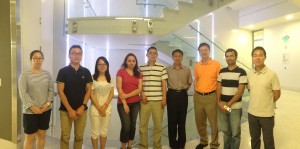
Dr. Yang’s Research Group with guest Dr. Zhou, June 2015
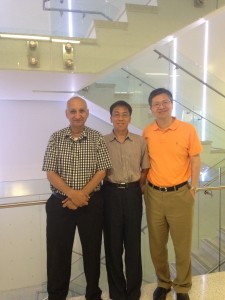
Dr. Shaikh, Dr. Zhou, and Dr. Yang (pictured L-R)
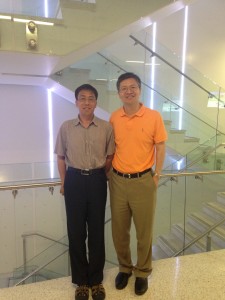
Dr. Liming Zhou and Dr. Zong-Liang Yang
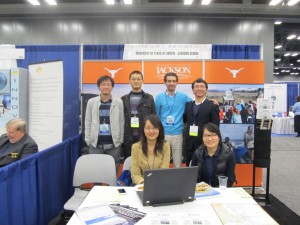
UT Booth, AMS 2013
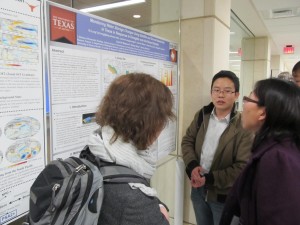
UT Poster Session, AMS reception
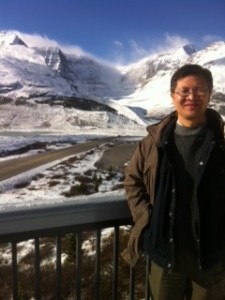
Dr. Yang, Banff









